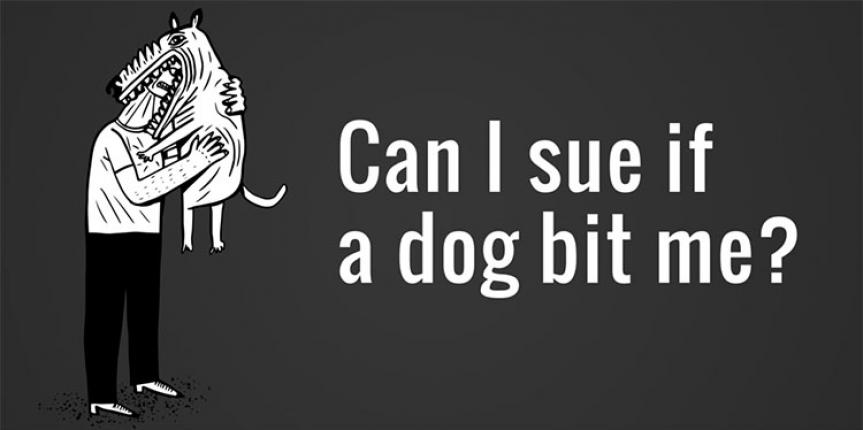Can You Sue Someone if Their Dog Bites You?
Dog bites can be frightening and painful. In some cases, dog bites can even cause lasting injuries, leave scars and/or force you to incur expensive medical bills. Fortunately, if a dog bites you and you sustain injuries, the dog's owner may be liable for the damage.
About Liability
If the dog's owner is found liable for the bite, he or she must compensate you accordingly. Depending on the circumstances, the owner may be responsible for your medical bills, any wages you lost from missing time at work, the cost of your medications and expenses related to damaged clothes or property. If you experienced pain or psychological trauma because of the incident, the owner may also be responsible for paying punitive damages.
Relevant Laws
Most states have laws requiring dog owners to prevent their pets from causing injury or property damage to others. If a dog does bite someone and cause an injury, these laws hold the owner liable for any damages related to the incident. Even if a given state doesn't have a law that refers to dog bites specifically, you may still be able to sue if you can prove that the owner was negligent, violated the state's leash law or knew that the dog was dangerous because of previous attacks.
- Arizona Dog Bite Law
Arizona Revised Statutes § 11-1025 states that a dog's owner is liable for any damages related to dog bites that occur in public or private locations, as long as the victim of the bite is not in a private location illegally when the bite occurs. Under this law, owners can be held liable for dog bites even when the incident occurs in the owner's home. Owners are liable for bites regardless of whether the dog has shown signs of viciousness in the past. - Arizona Leash Law
Arizona also requires dog owners to keep their pets properly restrained. Under Arizona Revised Statutes §11-1012, dog owners must keep vicious dogs and female dogs in heat must not be allowed to run free. The law also states that, in public parks and schools, dogs must be kept on a leash, in a car or in a cage. Some cities in Arizona, including Phoenix, have stricter leash laws that require dogs to be confined in all public and private locations, even when they are not vicious or in heat.
Possible Defenses
In some cases, the owner of the dog may be able to avoid full legal liability for damages relating to the bite if they can provide a reasonable defense. Common defenses presented in dog bite cases include:
- Evidence showing that the victim of the bite was trespassing.
- Evidence of provocation or aggression from the victim.
- Evidence showing that the victim was aware of the risk of danger.
- Evidence showing that the victim was negligent.
Contacting the Owner
Although Arizona law provides for lawsuits against dog owners, filing a claim immediately after an incident occurs isn't always the best course of action. In some cases, you may be able to resolve the matter by negotiating with the dog's owner. If you think your issue could be solved through negotiation, send a letter to the owner that details the incidents, explains all of the expenses you have incurred as a result and requests payment in full by a specific date. Let the owner know that if he or she is unable or unwilling to pay the requested amount, you intend to file a lawsuit. It's also wise to include references to the state's dog bite laws, especially if you think the owner will be reluctant to pay. Be sure to keep a copy of the letter you send for future reference.
If the dog's owner won't comply with the terms you presented, you can try to reach a compromise. If compromise isn't possible, it may be time to file a lawsuit.
Seeking Damages in Court
If you decide to file a claim against the dog's owner, consulting a personal injury attorney is highly recommended. After you have hired an attorney, he or she will help you file all of the necessary paperwork, gather evidence, subpoena witnesses and prepare for court so that you have the best possible chance of winning your case and getting the compensation you deserve.






